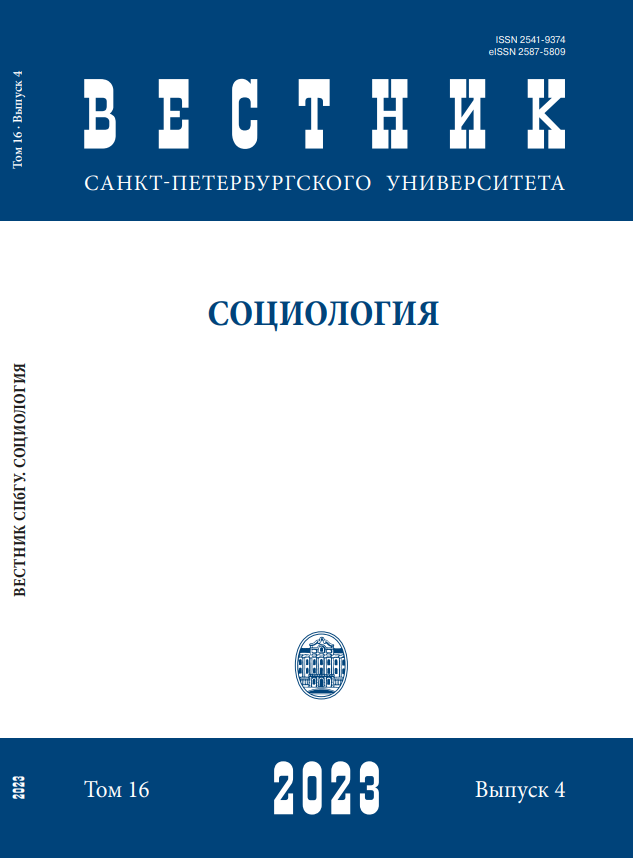Socio-cultural identity of students in the conditions of uncertainty of Russian society
DOI:
https://doi.org/10.21638/spbu12.2023.402Abstract
The article examines the socio-cultural basics of the identity of Russian students, due to the high degree of turbulence and uncertainty of public life, the introduction of digital technologies and the formation of hybrid reality. Understanding the socio-cultural identity as a “coordinate system” of identification, including a set of values, norms and patterns of behavior, beliefs and systems of representations, symbols and images of culture, authors draw attention to its multiple and hybrid character. Based on the data of the study “Students of Russia: Civic Culture and Life Strategies” conducted by the Center for Political Science of the ISPR FCTAS RAS in April — May 2023, conclusions were drawn about the growth of anxiety and unrealized expectations of modern youth that influenced the value spectrum of youth culture; about the aggravation of the ideological crisis; about a shift of support from the globalist vision to the “local” component in the value-semantic model of Russian socio-cultural identity. At the same time, Russian youths demonstrate their commitment to the democratic values of individualism, independence and freedom, which are reflected in building their professional careers with a high degree of precarization. Rapidly developing digital technologies have a significant impact on the self-identification of young people, creating multiple information flows, aggravating and distorting the already uncertain image of the future. As a result, adapting to this complex reality, young people form new hybrid forms of digital identity looking for support in the imaginary world of global virtual space, combining disparate multiple identities into a single profile. The analysis of empirical data included, inter alia, factor analysis by the principal component method and rotation by the Varimax method, which allowed us to construct identity indices and identify three groups of students with a predominance of Russian, Eurasian and global identity.
Keywords:
identity, self-identification, students, values, digitalization, uncertainty, youth, expertise, cybersocialization, citizenship
Downloads
References
Downloads
Published
How to Cite
Issue
Section
License
Articles of "Vestnik of Saint Petersburg University. Sociology" are open access distributed under the terms of the License Agreement with Saint Petersburg State University, which permits to the authors unrestricted distribution and self-archiving free of charge.




